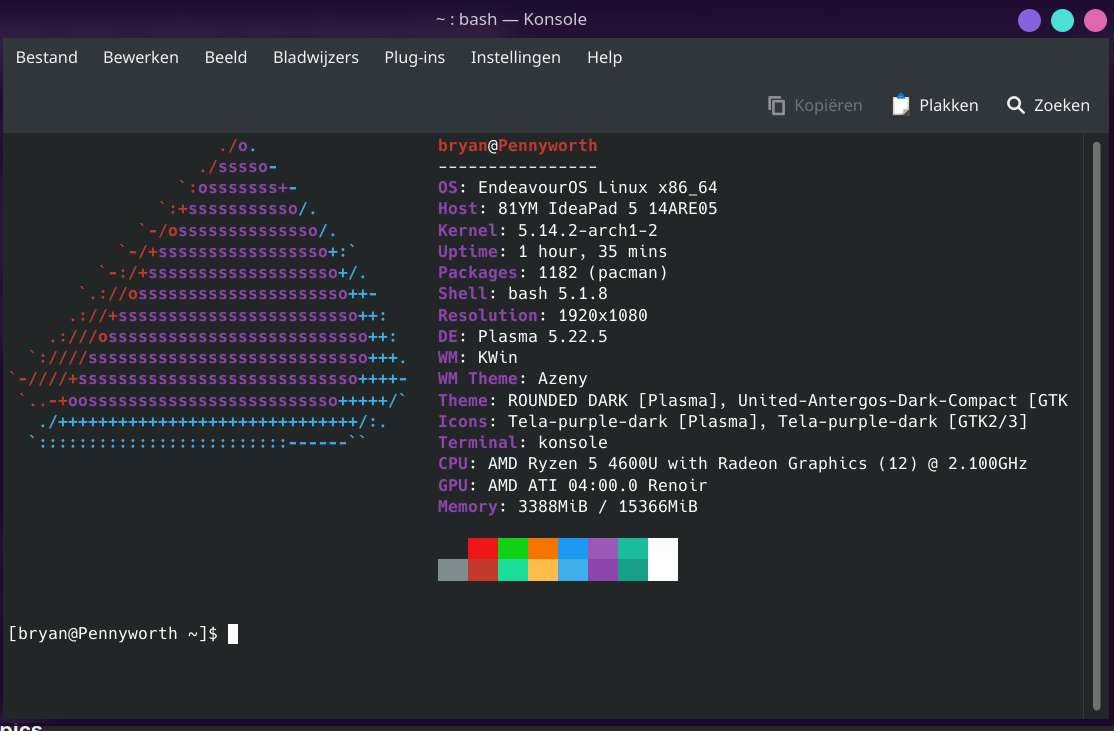Hello, I have switch from windows to Manjaro and then I was like Let’s try EndeavourOS so please consider me as a fresh blood that half the time does not know what he is doing…
Here is my configuration:
Operating System: EndeavourOS
KDE Plasma Version: 5.22.5
KDE Frameworks Version: 5.85.0
Qt Version: 5.15.2
Kernel Version: 5.14.2-arch1-2 (64-bit)
Graphics Platform: X11
Processors: 8 × AMD Ryzen 7 4700U with Radeon Graphics
Memory: 14.9 GiB of RAM
Graphics Processor: AMD RENOIR
Everything was working amazingly after a fresh install of Endeavour and yesterday while updating my system with yay -Syu I was excited to see a new Kernel update!
But unfortunately since the update my laptop is lagging like I never seen anything like that before since windows 95! I can’t even write this post without having massive delay or lag…
Did I miss something that I should have done after going from kernel 5.13 to 5.14?
Thanks in advance for all the reply! Have a nice day!


